13 Family-Friendly Large Breed Dogs You Should Consider
When choosing a dog for a family, especially a large breed, making a well-informed decision is crucial. Large breed dogs often exhibit high levels of loyalty, protectiveness, and gentle temperament, making them great companions. However, not all large breeds are well-suited for family life. This guide aims to help you evaluate the best large-breed dogs for family environments, considering their temperament, care needs, and compatibility with families.
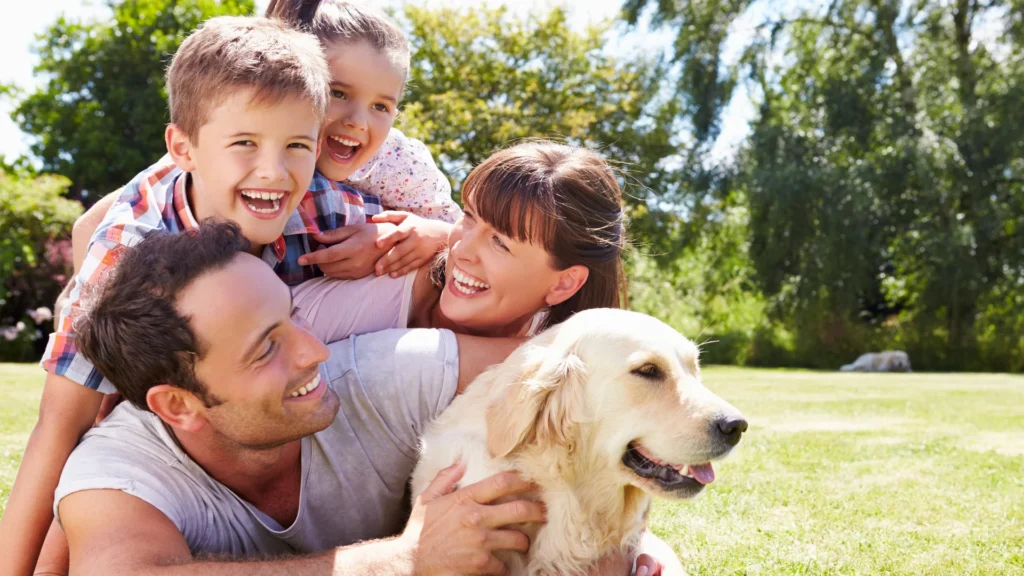
Factors to Consider When Choosing a Family Dog
- Temperament: Large-breed dogs, known for their size and strength, often have diverse temperamental traits ranging from calm and gentle to energetic and protective. Understanding the temperament of the breed you’re interested in is crucial for fostering a healthy, happy relationship with your new furry friend.
- Energy Level: When selecting a dog, it’s important to consider its activity level. Breeds with high energy levels typically need plenty of physical activity and playtime to keep them healthy and happy. Regular exercise and mental stimulation are also important to meet their needs.
- Size and Space Requirements: Ensuring that you have enough space available, both inside your home and outside, to meet its needs. Large dogs require adequate room to move around and exercise indoors and outdoors, so it’s important to consider this before bringing a large canine companion into your home.
- Grooming Needs: Some dog breeds require more frequent grooming due to their coat type, such as long or curly hair. This can be an important consideration for families with busy schedules, as they may prefer a breed with lower grooming needs to fit their lifestyle.
- Health and Lifespan: When planning for your pet’s future care, it’s essential to thoroughly research and understand the common health issues specific to their breed. Additionally, it’s crucial to learn about the breed’s average lifespan to provide the best possible care for your pet.
Tips for Integrating a Large Dog into Your Family
- Preparing Your Home: When preparing your home for a large dog, it’s important to ensure ample space for them to move around comfortably. Consider providing open areas and wide pathways to accommodate their size. Consider baby gates to restrict access to certain areas of your home, such as staircases or rooms with fragile items. This helps create a safe and secure environment for your dog and home.
- Introducing the Dog to Children: Ensuring gentle and respectful behaviour is vital when instructing children on interacting with dogs. Close supervision of initial interactions is necessary to guarantee the safety of the children and the dog.
- Training and Socialization: When training your dog, it’s important to invest time in teaching them to follow commands such as sit, stay, and come and to behave appropriately around children and guests. Socialization with other dogs and people is important to ensure your dog is well-adjusted and comfortable in various social situations. Positive reinforcement techniques and consistency in training will help your dog become a well-behaved and friendly companion.
- Ensuring Safety and Harmony: To promote a harmonious living environment, precise and uniform rules must be established for the canine and young household members. It is crucial to allocate a secure and designated area for the dog to seek solace or privacy. This proactive measure will mitigate stress and minimize conflicts between the dog and the children.
1. Golden Retriever

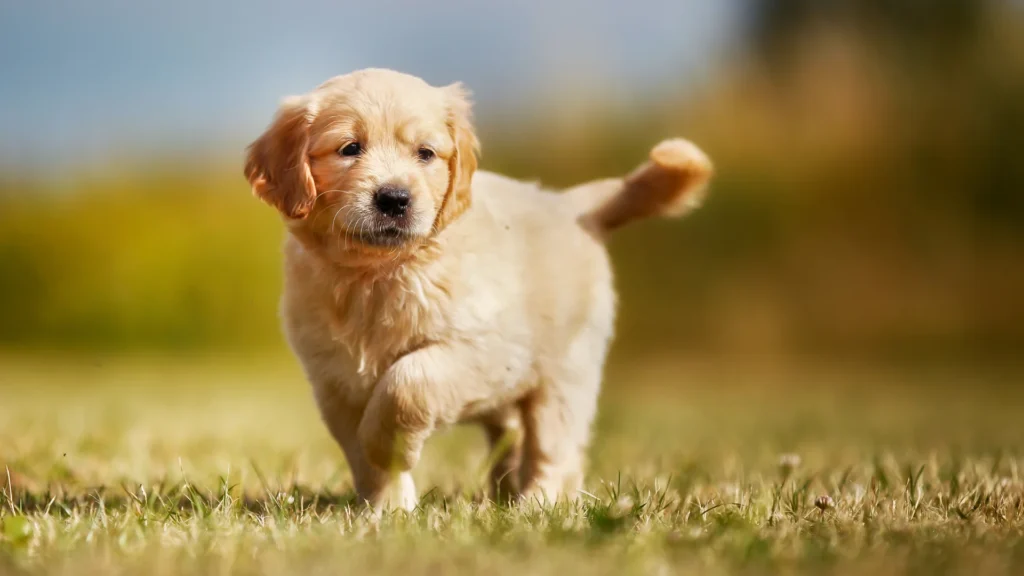
Golden Retrievers are incredibly versatile and excel in various activities such as agility, obedience, and search-and-rescue operations.
- Temperament: Golden Retrievers are known for their exceptional temperament, characterized by friendliness, intelligence, and unwavering devotion to their families. They are incredibly patient and gentle, making them perfect companions for families with children.
- Exercise: In terms of exercise needs, these dogs have high energy levels and require regular and daily exercise to keep them healthy and happy.
- Grooming: Golden retrievers have a beautiful, long, flowing double coat that requires consistent care to keep it in optimal condition. Regular grooming sessions, including brushing and combing, are essential to prevent tangles, remove loose hair, and distribute natural oils in the coat for a healthy and shiny appearance.
- Health: Golden Retrievers require regular check-ups with a veterinarian due to their susceptibility to health issues like hip and elbow dysplasia, hypothyroidism and heart diseases.
2. Labrador Retriever
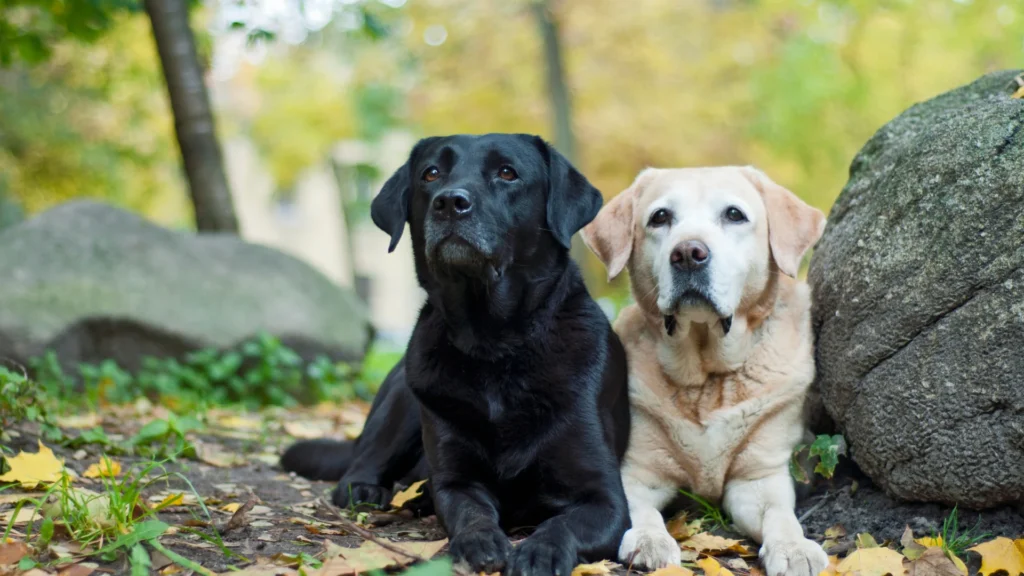
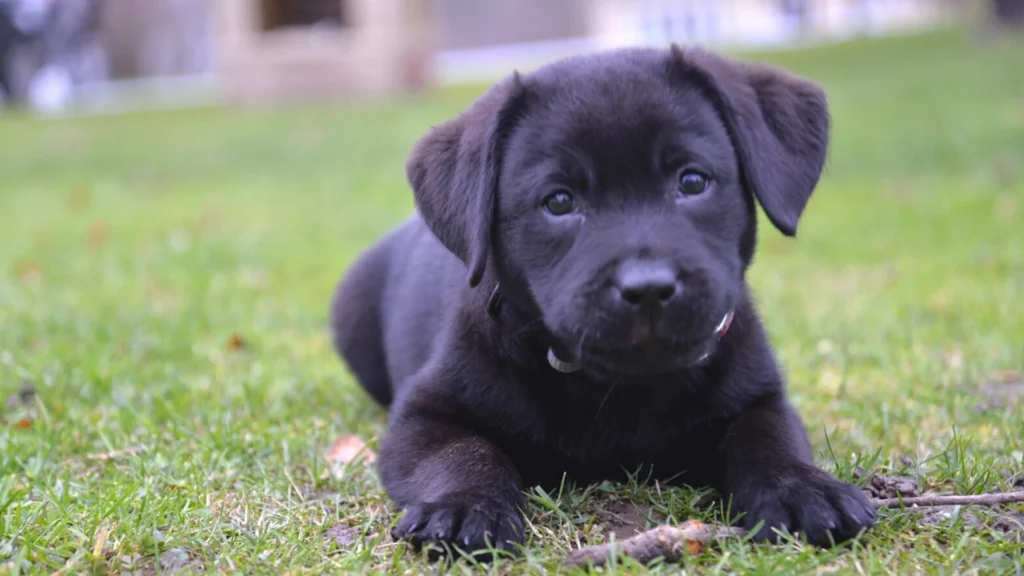
The Labrador Retriever is often considered one of the most popular and versatile dog breeds. It is known for its service dogs.
- Temperament: The Labrador Retriever is widely recognized for its amiable, sociable, and lively disposition, which makes it a superb choice as a family pet. Its kind and tolerant nature makes it especially well-suited for interacting with people of all ages.
- Exercise: Regarding exercise needs, Labrador Retrievers are high-energy dogs that require regular exercise to keep them healthy and happy. They thrive on fetching, running, and swimming, as they are exceptional swimmers with a natural affinity for water-related activities.
- Grooming: Labradors’ grooming requirements are moderate, as their dense, water-repellent coat requires regular brushing to control shedding. Additionally, they may benefit from occasional baths to keep their coat clean and healthy.
- Health: Labradors are generally robust and healthy dogs but can be predisposed to specific health issues such as hip dysplasia and obesity. Therefore, owners need to monitor their Labrador’s diet and ensure they receive adequate exercise to maintain a healthy weight.
3. Bernese Mountain Dog
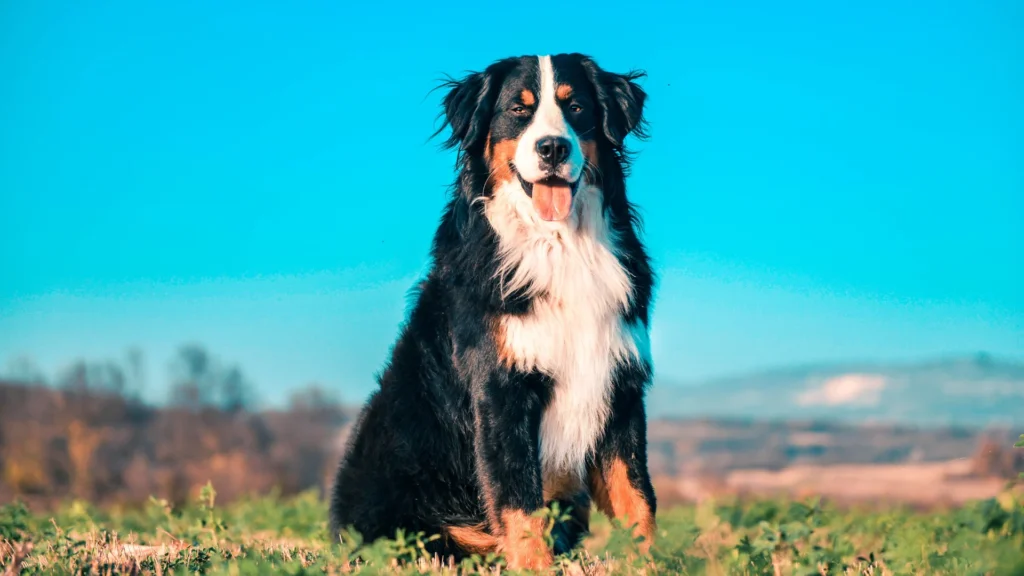
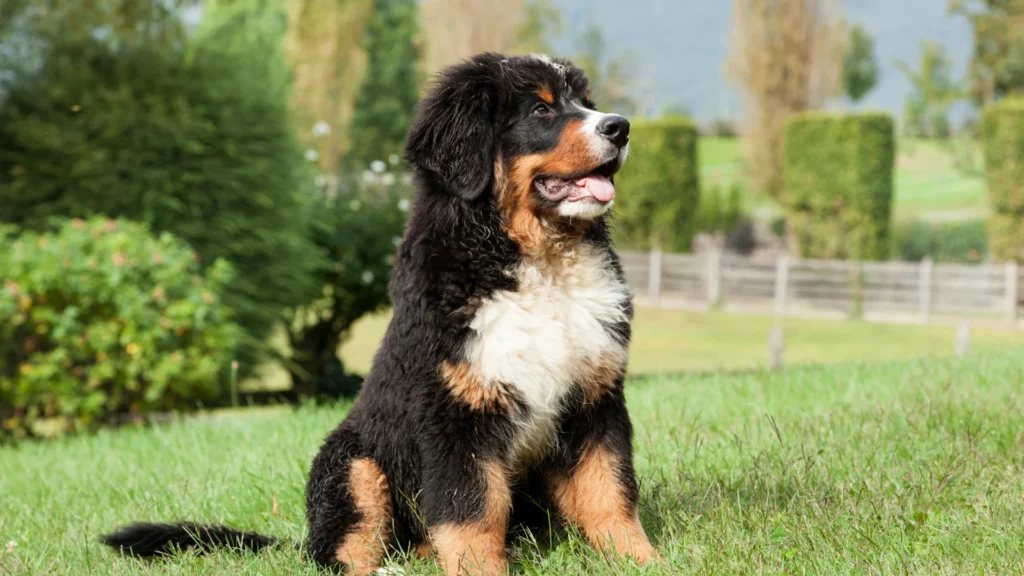
The Bernese Mountain Dog is known for its large size and gentle temperament. They are often called “gentle giants” due to their patient and tolerant nature.
- Temperament: Bernese Mountain Dogs are good-natured, calm, and strong. They are known for their loyalty and affection toward their human companions and thrive in a family setting. Additionally, they possess remarkable strength and an innate ability to perform tasks, giving them a sense of purpose within the household.
- Exercise: Bernese Mountain Dogs benefit from regular moderate physical activity. They thrive when they can engage in outdoor activities and enjoy exploring their environment. Regular exercise is essential for their overall health and well-being, contributing to their happiness and vitality.
- Grooming: These big and beautiful Bernese Mountain Dogs require a lot of grooming because of their dense double coat. It’s important to groom them regularly to ensure their coat stays healthy and doesn’t get tangled.
- Health: Bernese Mountain Dogs typically have a shorter lifespan than other breeds. They are predisposed to certain health issues, including hip and elbow dysplasia, eye disease, bloat, and cancer.
4. Newfoundland
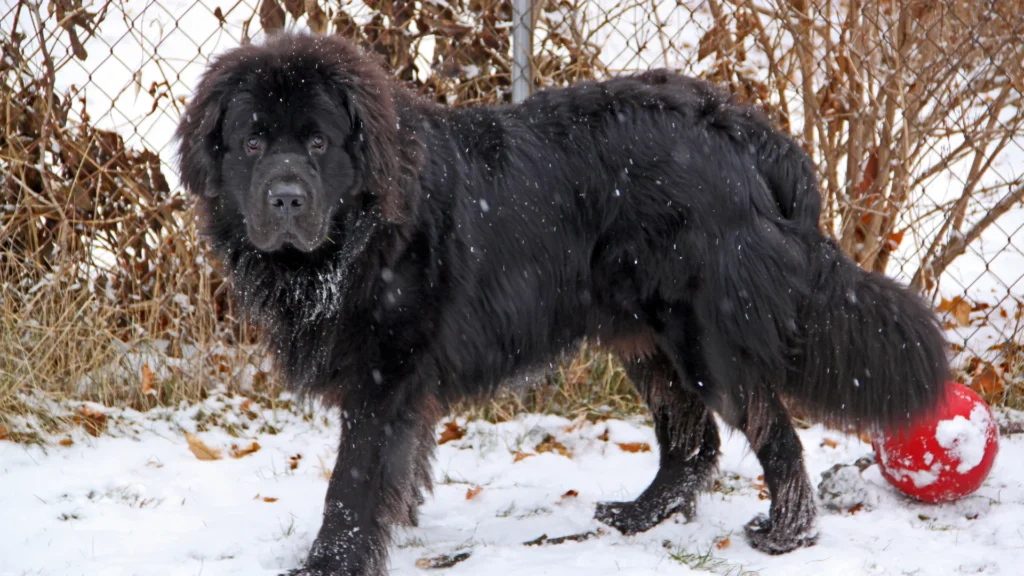
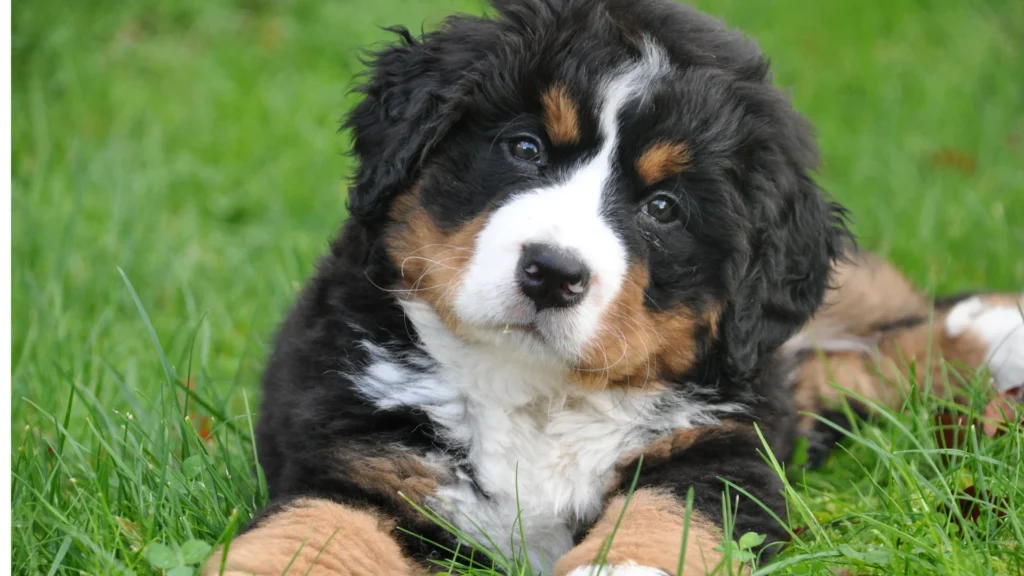
Newfoundland dogs, often called “Newfies,” are known for their friendly nature and love for water. They have a long history of rescuing people from dangerous waters.
- Temperament: These gentle giants, affectionately known as “nanny dogs,” are cherished for their remarkable patience and protective instincts, particularly when safeguarding and caring for children.
- Exercise: Newfoundlands are known for their love of outdoor activities, particularly swimming. They enjoy moderate exercise and thrive in an environment where they can engage in physical activities.
- Grooming: The Newfoundland dog is known for its dense, water-repellent coat, which demands frequent grooming and attentive care to keep it healthy and in top-notch condition.
- Health: Additionally, Newfoundlands, being a large breed, are prone to certain health issues, including hip dysplasia, heart conditions, and also a condition called sub-aortic stenosis, which affects the heart valves. Regular check-ups and early detection can help manage these potential health concerns.
5. Boxer
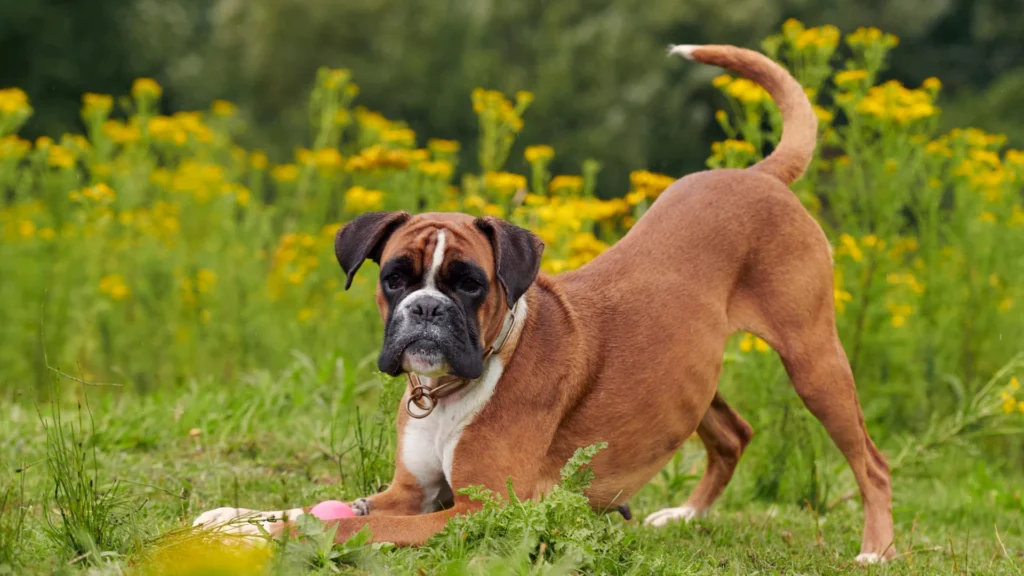
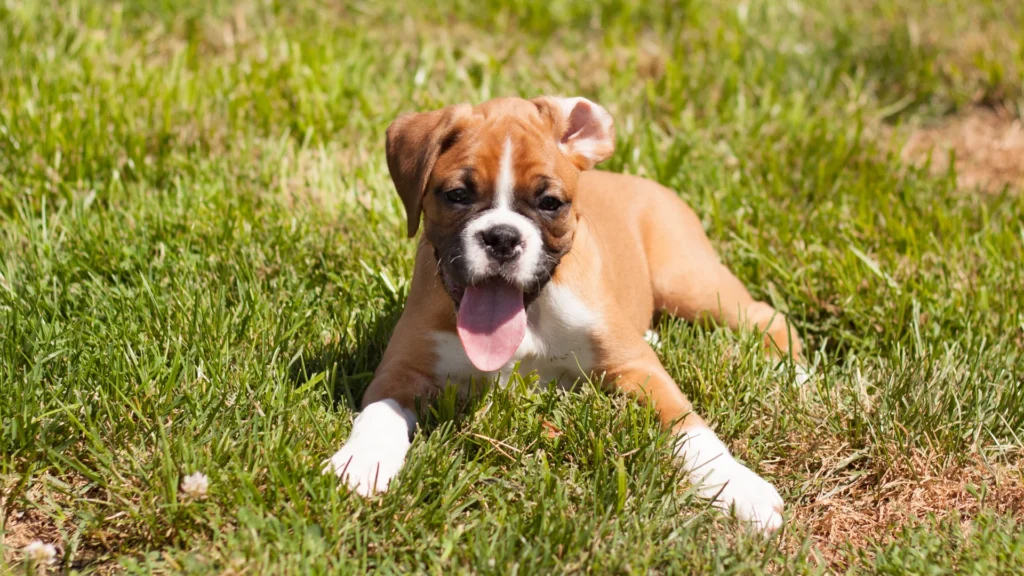
Their protective instincts make them excellent family guardians, and they are particularly well-suited for active families who enjoy outdoor activities.
- Temperament: Boxers are well-known for their playful and energetic nature, making them excellent family companions. They are highly loyal and affectionate towards their owners. Boxers are intelligent, protective, and agile, making them well-suited for various activities and as all-around family pets.
- Exercise: Boxers are energetic and active dogs that require regular physical activity. Daily exercise is crucial in maintaining their health and keeping them content.
- Grooming: Boxers are pretty active dogs but have low grooming needs due to their short coats. They only need occasional brushing to keep their coat well-maintained.
- Health: Boxers are a breed of dog that can be susceptible to various health issues, such as heart diseases, Degenerative Myelopathy, Cardiomyopathy, and cancer
6. Great Dane
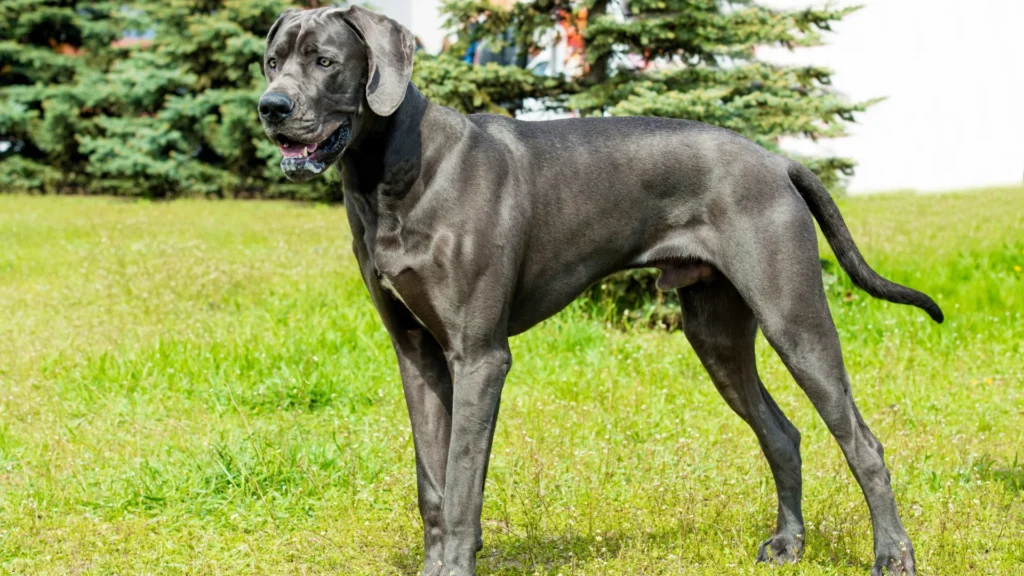
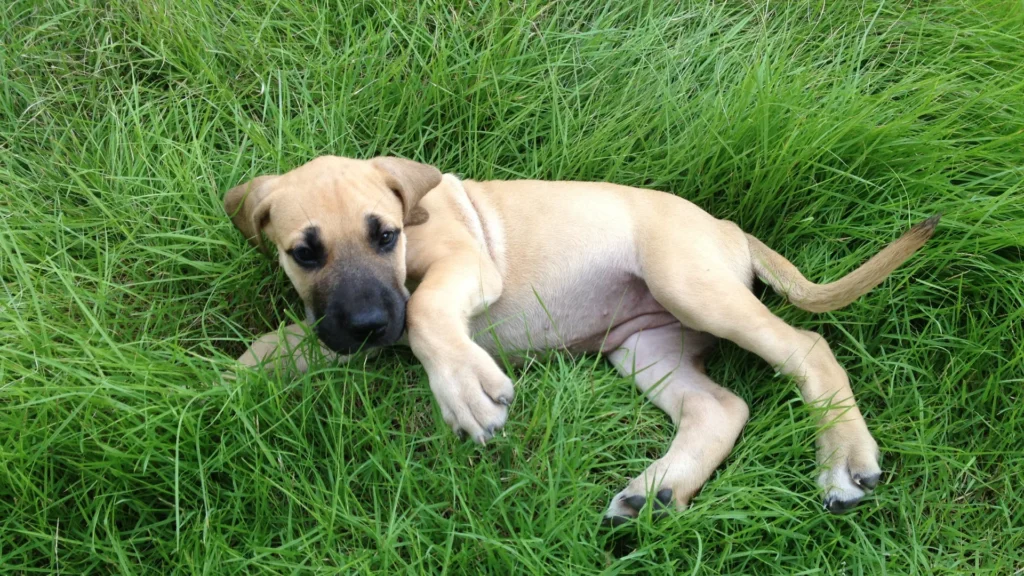
Great Danes are majestic and gentle giants known for their imposing size and friendly nature.
- Temperament: The Great Dane is known for its friendly and gentle nature. It is also patient and reliable, making it a great companion.
- Exercise: Great Danes need to exercise moderately; they require regular physical activity but not excessive amounts.
- Grooming: They are large dogs that require minimal grooming, with occasional brushing, to keep their coat in good condition.
- Health: Known to be susceptible to health issues such as hip dysplasia, cardiomyopathy, osteoarthritis, hypothyroidism and bloat.
7. German Shepherd
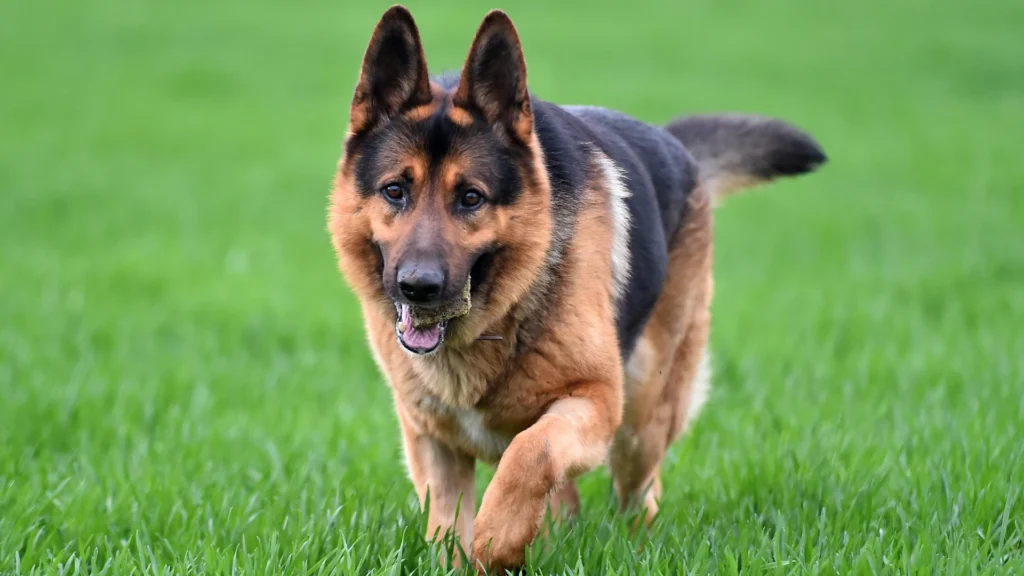
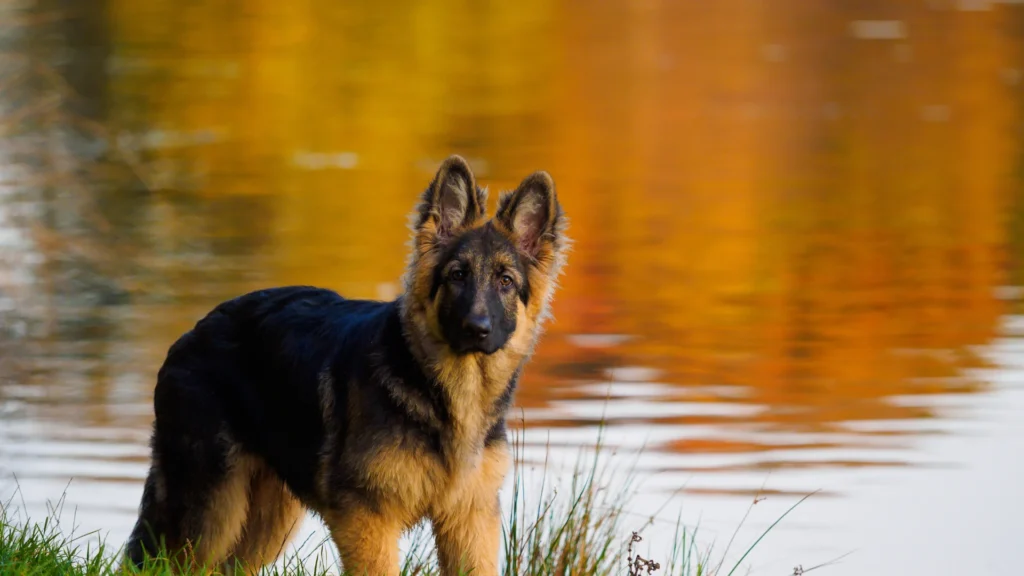
German Shepherds are intelligent and versatile dogs known for their loyalty and protective instincts. They are highly trainable and can excel in various activities, including obedience, agility, and protection work. They are excellent working dogs often used in police and military roles.
- Temperament: The German Shepherd is known for its exceptional intelligence, unwavering loyalty, and remarkable courage. This breed is highly adept at various tasks, possesses a strong sense of duty, and is fearless in protecting and serving its owners. It is protective, loyal, and good with children when properly trained.
- Exercise: Highly intelligent and active, the German Shepherd requires regular physical exercise and mental stimulation to thrive.
- Grooming: This breed requires moderate grooming due to its double coat. Regular brushing is beneficial to manage shedding.
- Health: German shepherds tend to develop hip and elbow dysplasia and other genetic conditions due to their breeding and genetics.
8. Irish Setter
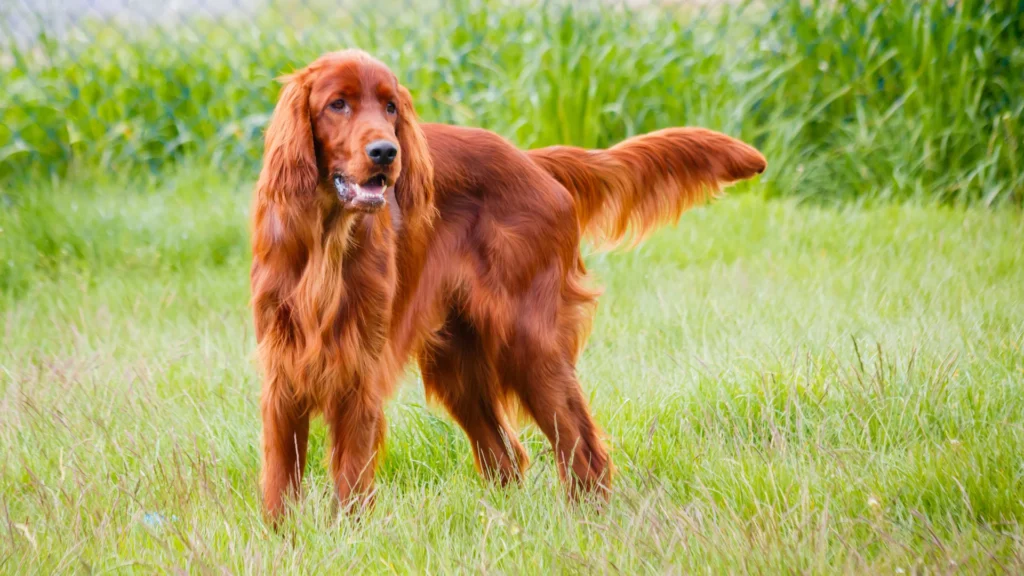
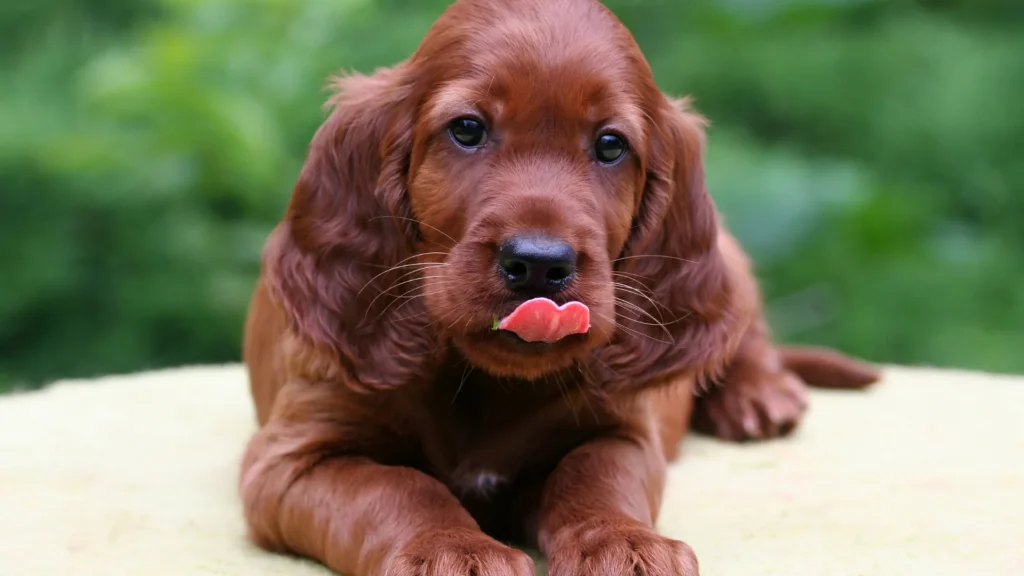
Irish Setters are known for their astonishing red coats, friendly personalities, and love of the outdoors.
- Temperament: The Irish Setter is known for being lively, outgoing, and friendly. This energetic and extroverted breed often shows an affectionate and enthusiastic demeanour towards people, making them ideal companions for those seeking an active and engaging canine friend.
- Exercise: They are known for their high energy levels and require plenty of playtime and exercise to keep them happy and healthy.
- Grooming: Irish Setters have a beautiful, long, and silky coat that requires regular grooming to keep it in top condition.
- Health: They are susceptible to specific health issues such as hip dysplasia, bloat, progressive retinal atrophy, hip dysplasia and hypothyroidism
9. Rottweiler
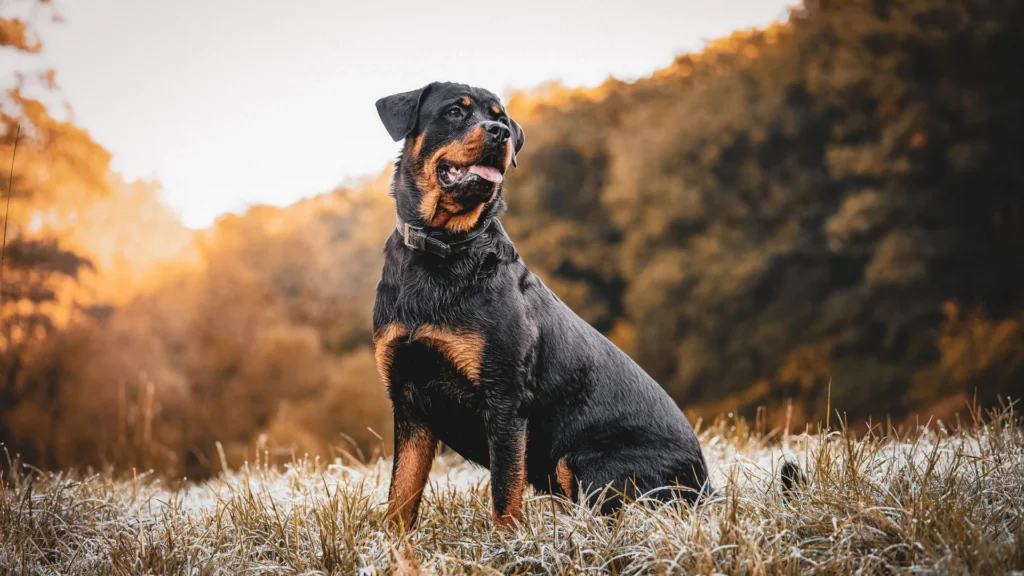
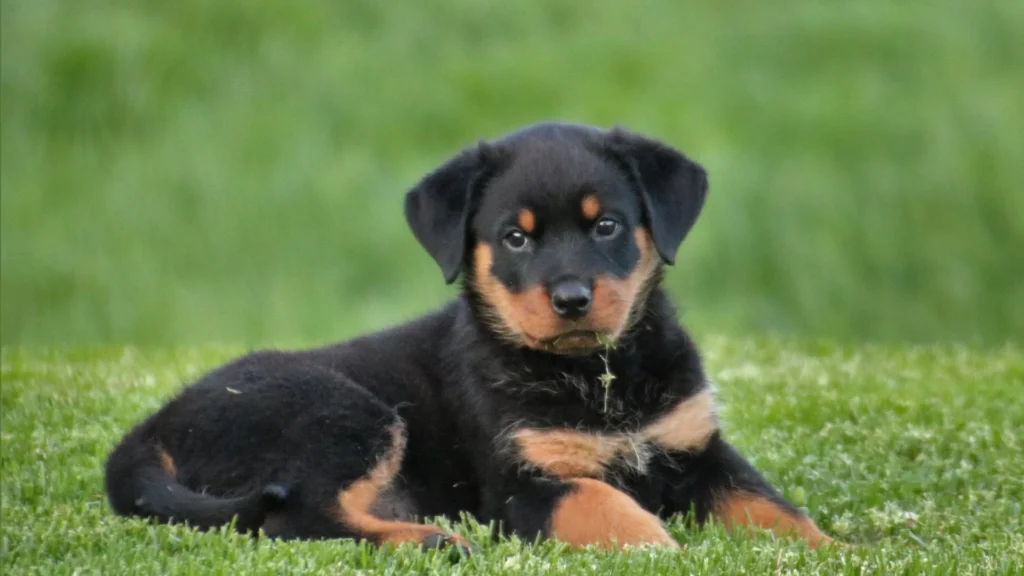
Rottweilers are strong and confident dogs known for their loyalty and protective instincts. They are often used as guard dogs but can also be loving family pets when properly trained and socialized.
Temperament: Rottweilers are known for being confident, loyal, and protective. They are strong, intelligent dogs with a natural guarding instinct.
Exercise: The Rottweiler is a large and powerful breed known for its high energy levels, so it requires regular physical activity to stay healthy and happy.
Grooming: Rottweilers require minimal grooming, with only occasional brushing to keep their coat in good condition.
Health: Rottweilers are generally a healthy and robust breed but are prone to specific health issues. Some of the common health concerns are hip and elbow dysplasia, aortic stenosis, osteosarcoma, and certain types of cancer.
10. Collie
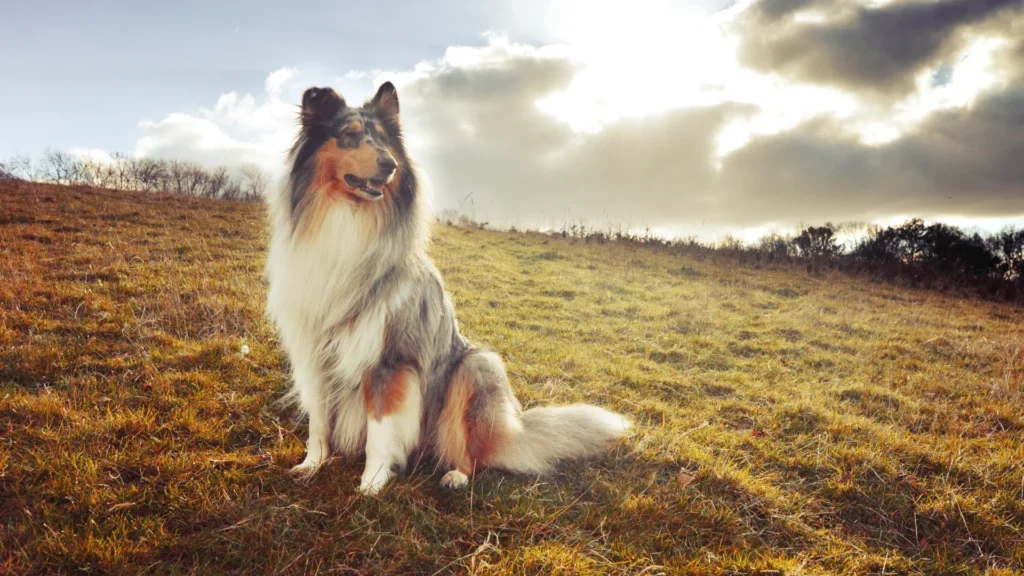
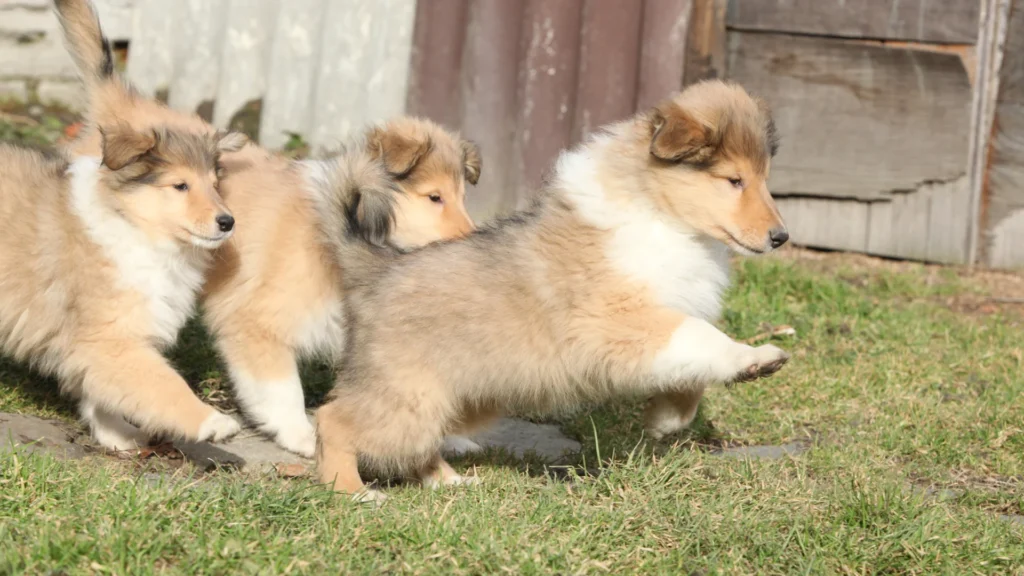
The Collie is a devoted and intelligent herding dog known for its loyalty, gentle nature, and striking, long-haired coat. They are excellent family pets and are often described as sensitive and eager to please.
- Temperament: Collies are known for their intelligence and gentle nature. They are excellent with children and make great family pets due to their friendly and loyal disposition.
- Exercise: The collie breed is known for its moderate energy level and enjoyment of regular outdoor activities.
- Grooming: Collies require moderate grooming and benefit from regular brushing to keep their coats in good condition.
- Health: Collies are generally healthy and robust but are genetically predisposed to conditions such as Collie Eye Anomaly (CEA), progressive retinal atrophy (PRA), and deafness.
11. Standard Poodle

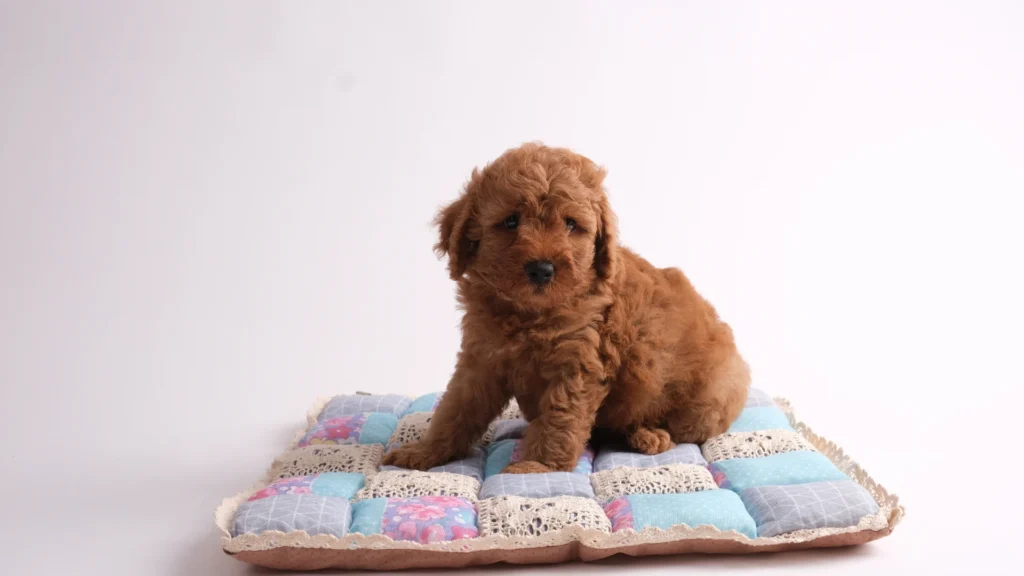
The Standard Poodle is a highly intelligent and trainable breed known for its elegant appearance and hypoallergenic coat.
- Temperament: With their friendly and gentle nature, Standard Poodles are highly adaptable dogs that thrive in numerous environments, making them an excellent choice for active families.
- Exercise: High energy; enjoy various activities and mental stimulation.
- Grooming: Their low-shedding coat makes them a popular choice for allergy sufferers. Regular grooming is necessary to maintain their curly coat and keep them looking their best.
- Health: Standard poodles are generally a healthy and resilient breed. Some common health concerns for standard poodles include hip dysplasia, progressive retinal atrophy, epilepsy, and bloat.
12. Alaskan Malamute
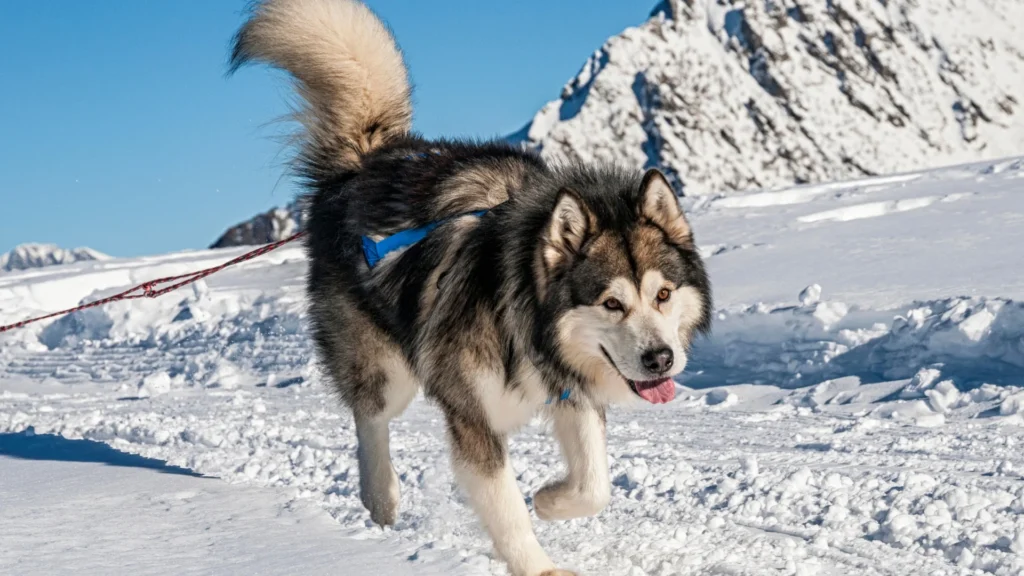
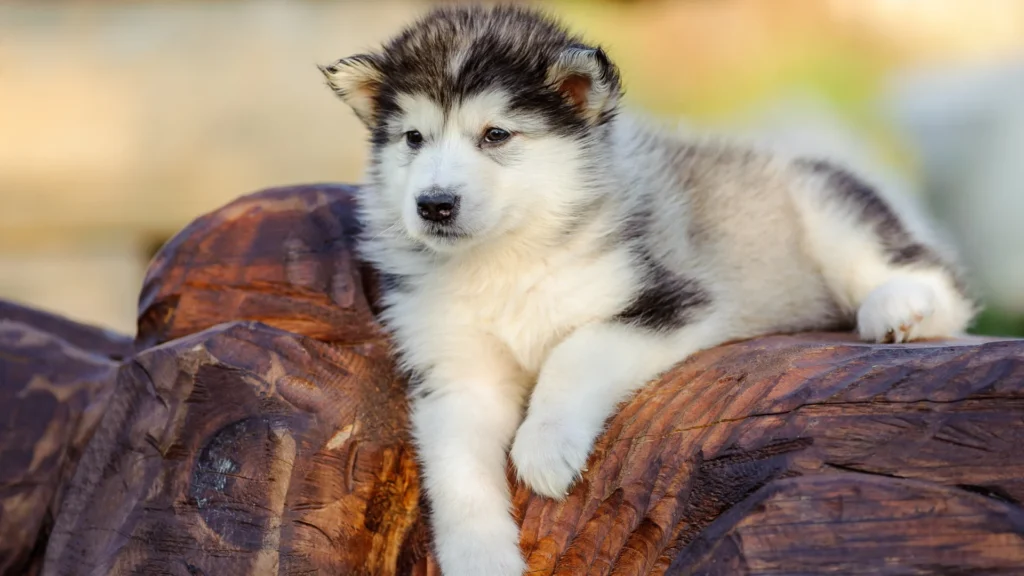
The Alaskan Malamute is a large, powerful dog breed known for its strength, endurance, and friendly nature. These dogs were historically used as sled dogs to haul heavy freight.
- Temperament: Alaskan Malamutes are friendly, affectionate, and playful. They are also incredibly loyal and thrive on human companionship. However, their independent and strong-willed nature can make training challenging, requiring consistency and patience.
- Exercise: Malamutes are high-energy dogs that require substantial exercise to stay happy and healthy. They were bred to pull heavy sleds, so they need activities that allow them to be active, such as long walks, runs, and playtime in secure areas. They excel in activities like hiking, carting, and agility training.
- Grooming: The Alaskan Malamute’s thick double coat requires regular grooming. Weekly brushing is necessary to remove loose fur and prevent matting, with daily brushing needed during shedding seasons.
- Health: Generally healthy but prone to certain genetic conditions, such as hip dysplasia, elbow dysplasia, Chondrodysplasia, bloat and eye problems.
13. St Bernard
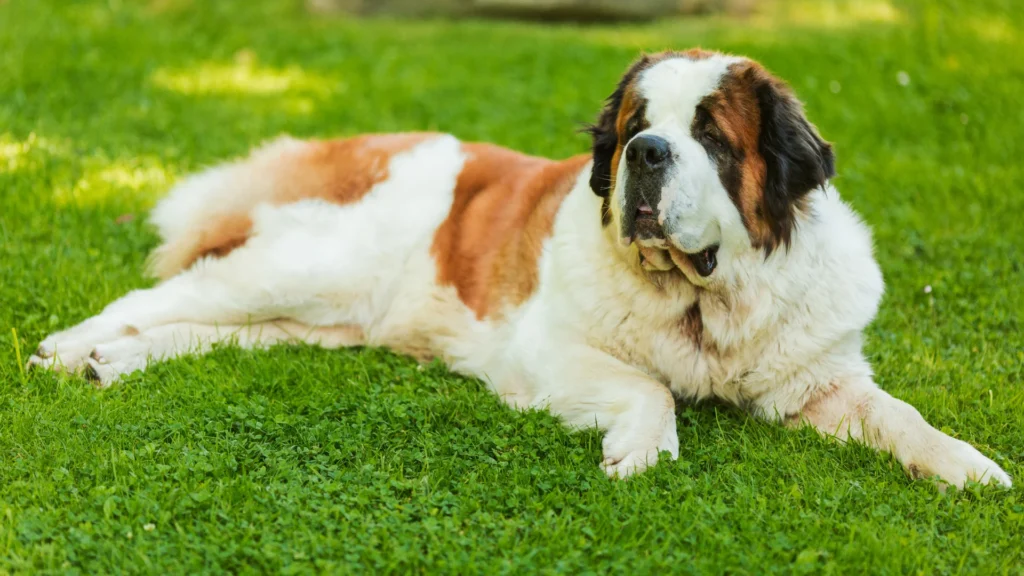
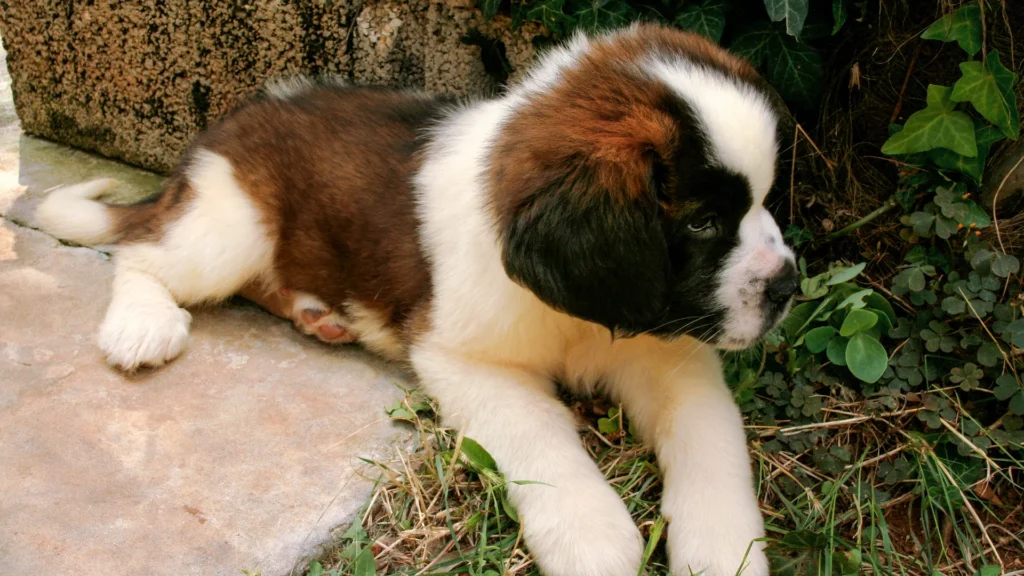
The St. Bernard is a large, gentle dog breed known for its impressive size, friendly disposition, and historical role as a rescue dog in the Swiss Alps.
- Temperament: St. Bernards are known for their gentle, affectionate, and friendly temperament. They are great with children and make excellent family pets due to their patience and tolerance. Despite their large size, they are typically calm and well-mannered, enjoying the company of their human family.
- Exercise: St. Bernards need moderate exercise. Regular, moderate exercise is essential to keep them fit and prevent obesity, but they also appreciate plenty of rest.
- Grooming: The St. Bernard’s thick coat requires regular grooming to keep it in good condition. Weekly brushing is necessary to manage shedding and prevent matting, with more frequent brushing during shedding seasons.
- Health: They are generally healthy, but their large size makes them prone to certain health issues, including hip and elbow dysplasia, bloat, Entropion and heart conditions.
Each of the breeds mentioned above has unique qualities that can make them excellent family pets. Whether you are looking for a gentle giant like the Newfoundland or a protective guardian like the Rottweiler, there is a large breed dog that can fit smoothly into your family life.
